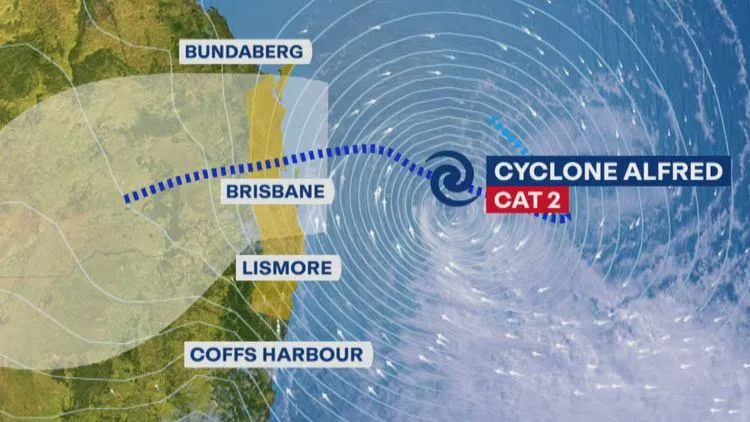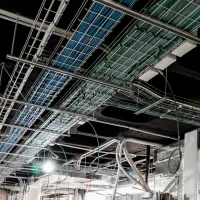
1800 573 360
Stay up to date

Cyclone Alfred: Essential Electrical Safety & Preparation Guide
Cyclone Alfred: Essential Electrical Safety & Preparation Guide
Stay Safe & Protect Your Electrical Systems Before, During, and After the Cyclone
Cyclone Alfred is approaching, and extreme winds, heavy rainfall, and power outages are expected. Are you prepared?
Severe weather events like this can cause electrical hazards, damage appliances, and disrupt power for days. In this guide, we’ll walk you through essential electrical safety steps to help you protect your home, business, and loved ones before, during, and after the cyclone.
🛑 1. Pre-Cyclone Electrical Preparation Checklist
🔋 Backup Power & Generator Readiness
✅ Ensure generators are serviced, fueled, and tested before the cyclone hits.
✅ Store extra fuel safely in a dry, well-ventilated area.
✅ Use surge-protected power boards when connecting appliances to your generator.
✅ Know how to safely operate & connect your generator—never back-feed into mains power!
⚡ Turn Off & Secure Your Solar System
✅ If safe to do so, turn off your solar power system to avoid damage.
✅ Secure loose solar panels or external battery storage units to prevent wind damage.
✅ After the cyclone, do NOT reconnect solar power until an electrician inspects it.
🔌 Unplug & Protect Appliances
✅ Unplug all non-essential electronics (TVs, computers, fridges, and smart lighting systems like CBus, KNX, DALI).
✅ Switch off power at the main circuit breaker if flooding is expected.
✅ Secure exposed outdoor electrical outlets to prevent water damage.
🛠️ Schedule an Electrical Safety Check
✅ Get a pre-cyclone electrical inspection to ensure your wiring, switchboards, and surge protection systems are in top shape.
📞 Need an inspection? Call DFE Electrical on 0413 778 015 today!
⛈️ 2. Electrical Safety Tips During Cyclone Alfred
🚨 If power goes out, assume all wires are live and dangerous.
⚠️ Avoid using electrical appliances unless connected to a properly installed generator.
⚠️ Do NOT touch fallen power lines or cables—they could still be live.
⚠️ Stay away from flooded areas—water can conduct electricity from damaged wiring.
⚠️ Use flashlights instead of candles to prevent fire hazards during power outages.
⚠️ If power fluctuates, turn off appliances immediately to prevent damage from power surges.
💡 Emergency Tip: Keep a battery-powered radio & phone charger to stay updated on cyclone alerts.
🛠️ 3. Post-Cyclone Electrical Safety & Recovery
Once Cyclone Alfred passes, do not restore power until you follow these safety steps:
🔍 Inspect Your Property for Electrical Damage
✅ Check for damaged power lines, exposed wiring, or waterlogged switchboards.
✅ If you smell burning plastic or see scorch marks, leave the property immediately and call an electrician.
⚡ DO NOT turn the power back on if:
❌ Your home or business has flooded electrical panels or power points.
❌ You notice sparking wires, flickering lights, or buzzing sounds.
❌ Any electrical system was submerged in water.
🔋 Restoring Power & Backup Solutions
✅ If using a generator, ensure proper ventilation and never use it inside a home or garage.
✅ Have an electrician inspect & reconnect your solar system before turning it on.
✅ Upgrade to battery backup systems or emergency power solutions for future cyclone resilience.
📞 Need an urgent post-cyclone electrical inspection? Call 0413 778 015
🏠 Stay Safe & Prepare Now with DFE Electrical
Cyclone Alfred is unpredictable—don’t wait until it’s too late! Secure your backup power, surge protection, and electrical safety checks now.
📞 Call 0413 778 015 for a Cyclone Electrical Safety Inspection
🔗 Book an Emergency Service
#CycloneAlfred #StormSafety #BackupPower #GeneratorSafety #ElectricalSafety #DFEElectrical 🚀
